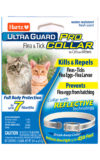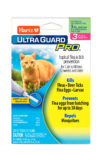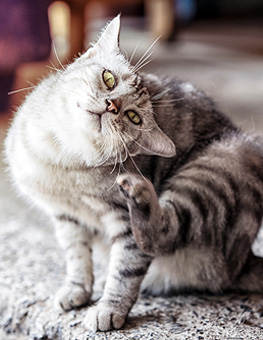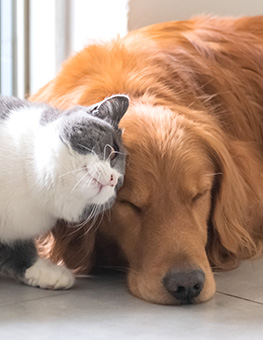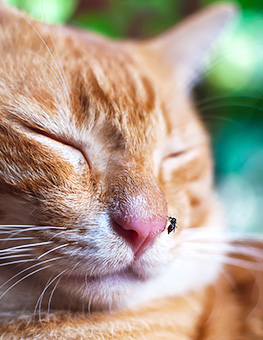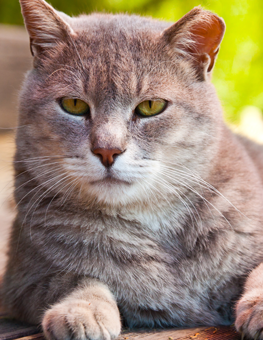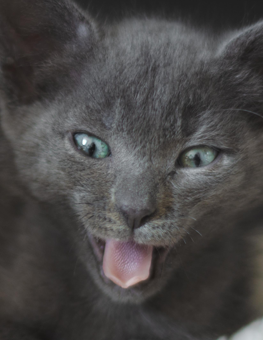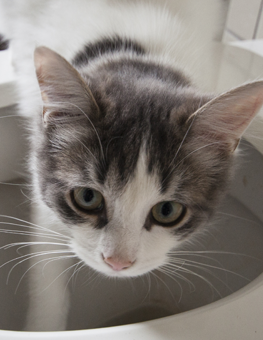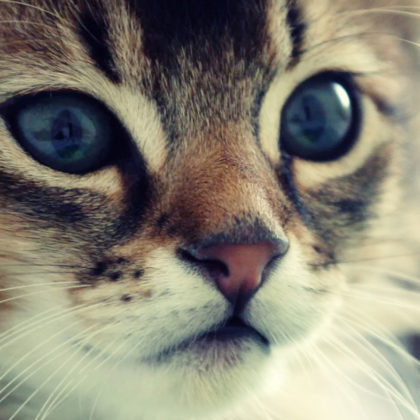Protection from Mosquitoes for Your Cat
It’s a nice, warm, pleasant day outside. You’re trying to enjoy a hike or run, or maybe a picnic with your family. But there’s just one problem preventing you from fully enjoying your day: mosquitoes.
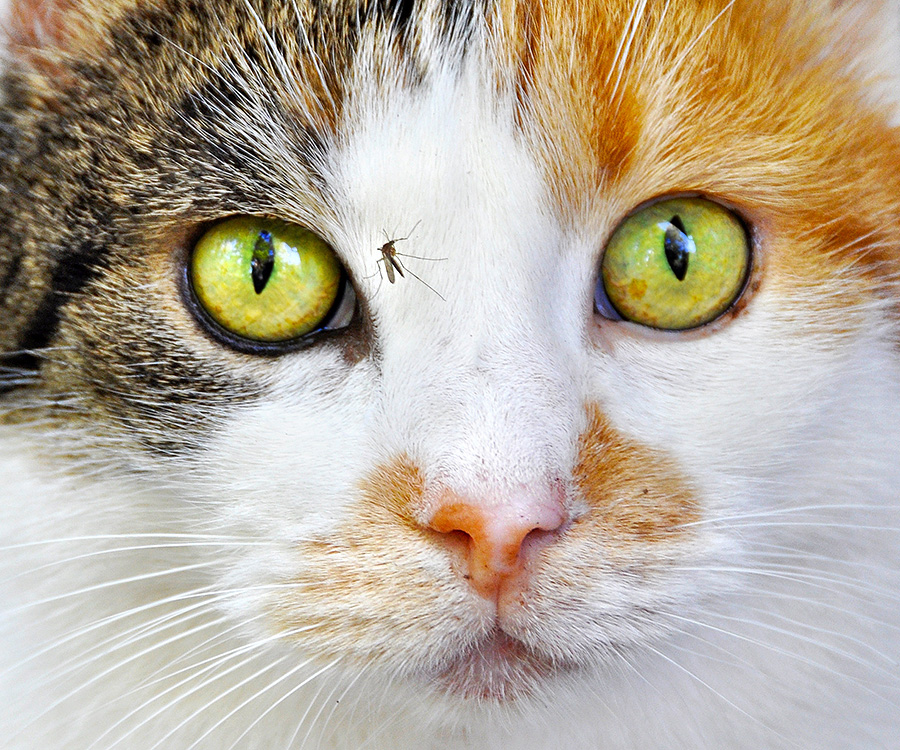
A mosquito bite to a cat can result in anything from an annoying itch to more serious parasitic diseases.
These pesky critters aren’t just an annoyance to you. They can also cause serious problems for your feline friends.
What Are Mosquitoes?
Mosquitoes are insects that have adapted extremely well to living off a host’s blood. While not particularly strong fliers, these parasites can find hosts from a distance, then attack, feed, and escape without much notice. The mosquito life cycle can last from one to two months depending on environmental conditions, thus allowing for several generations to emerge in any given year. This is particularly true in warmer months or warmer regions.
Feeding and Breeding Habits of Mosquitoes
The adult male mosquito feeds on nectar rather than blood. Only adult females feed on blood, which is necessary for them to be able to produce eggs. She uses cues including odor, movement, and exhaled carbon dioxide to locate her host. The female mosquito looks for a host immediately upon emerging from the pupae. After feeding, she will then lay her first batch of eggs and search for her next host. After her second and last blood meal, she lays her second batch of eggs. This dual host / egg-laying characteristic creates the potential for mosquito population explosions.
Mosquitoes and Disease
In addition to being irritating pests, these insects cause itchy bites and can even spread diseases. Not only are they a risk to humans, but they are also a big problem when it comes to your cat. Although cats seem like they would be guarded against mosquitoes by their fur, they are actually quite vulnerable to bites on their ears and noses. As with humans, a bite from a mosquito to a cat can result in anything from an annoying itch to more serious parasitic diseases. In felines, mosquito bite hypersensitivity and heartworm disease are the primary concerns.
- Mosquito bite hypersensitivity is the result of a reaction of the cat's immune system to a mosquito bite. In cats, this exhibits as lesions, scaling or raw ulcers in the area of the bite. Hair loss and pigment changes in the affected area are also typical. Often, the pads of the feet will be thickened, swollen, tender, and red. Swollen lymph nodes and fever may also occur. Severe mosquito bite hypersensitivity is treated with oral or injected corticosteroids. Milder cases often resolve themselves on their own, as long as the cat is protected from additional bites.
- Heartworm disease is a serious parasitic condition caused by a worm living in the blood vessels and heart of infected pets. The disease is spread by mosquitoes. When an infected dog or cat is bitten by a mosquito, the blood that is withdrawn can contain heartworm offspring. When a mosquito bites a cat, the offspring are passed through. Inside the cat, the heartworm can grow into a parasite up to a foot in length. Even a small number of heartworms can easily kill a cat.
Protection from Mosquitoes
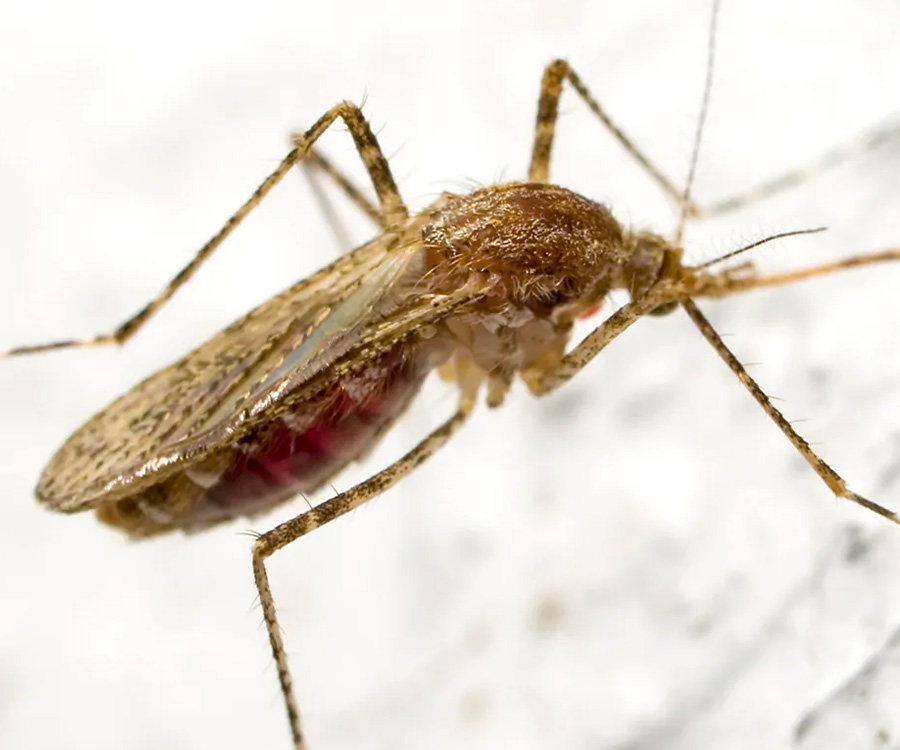
Controlling the mosquito population around your home can help to minimize bites.
Both of the conditions above can be addressed in part by keeping your cat indoors and controlling the mosquito population in your local environment. The following preventative measures will help to minimize bites for both you and your pets:
- Remove sources of stagnant water around the house and garden. Mosquitoes breed and thrive in standing water.
- Change water bowls frequently.
- Fit windows and doors of your home with screens to prevent mosquitoes entering.
- Use insect repellants with caution. Products with DEET are not recommended for cats and some repellants with essential oils have not been tested for effectiveness or safety.
If mosquito bites occur on the cat’s ears or nose, they can be treated with an antibacterial cream at the guidance of your veterinarian in order to keep them from becoming infected. Be sure to update your veterinarian if the bites do not heal or appear to be getting worse.
You should also speak to your veterinarian about the need for preventative therapy for heartworm. NEVER use canine heartworm medicine on your cat. Drug dosage levels vary from species to species. Treatment should always be under the direction of your veterinarian.
Did you know that Hartz carries a line of products for your cat that repel mosquitoes, including collars and topical drops? These UltraGuard products have the added bonus of repelling and killing harmful flea and ticks in addition to protection from mosquitoes.
Both you and your cat will benefit from controlling the mosquito population around your home.



